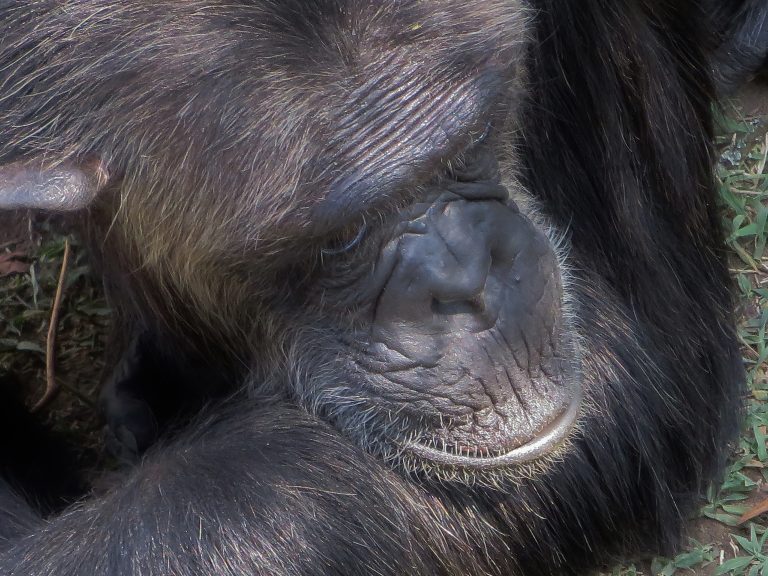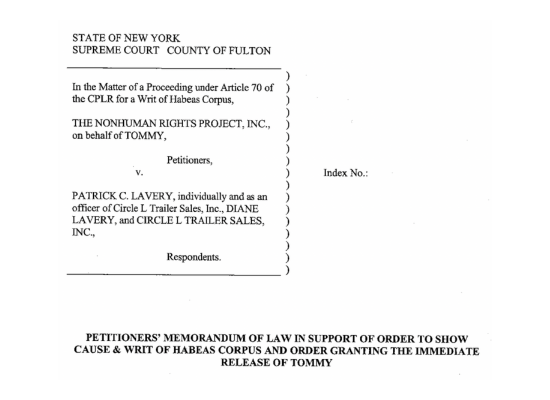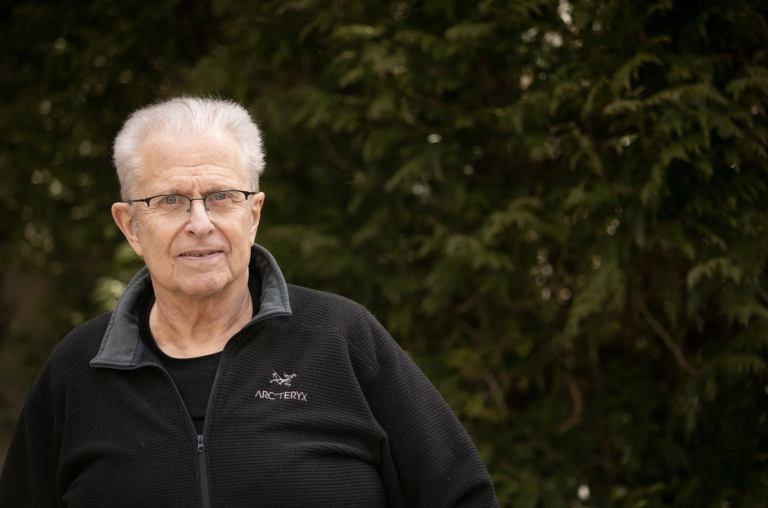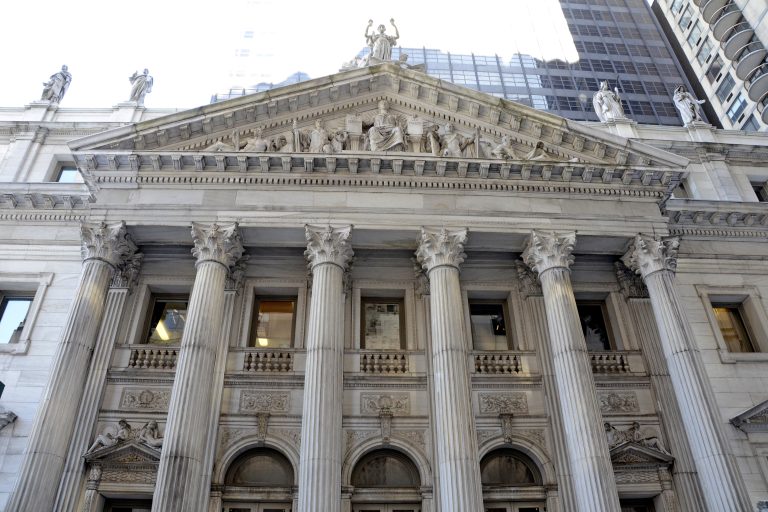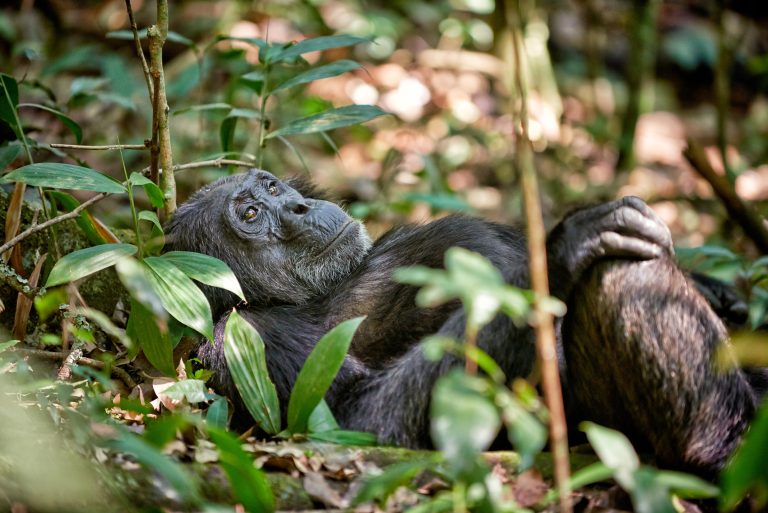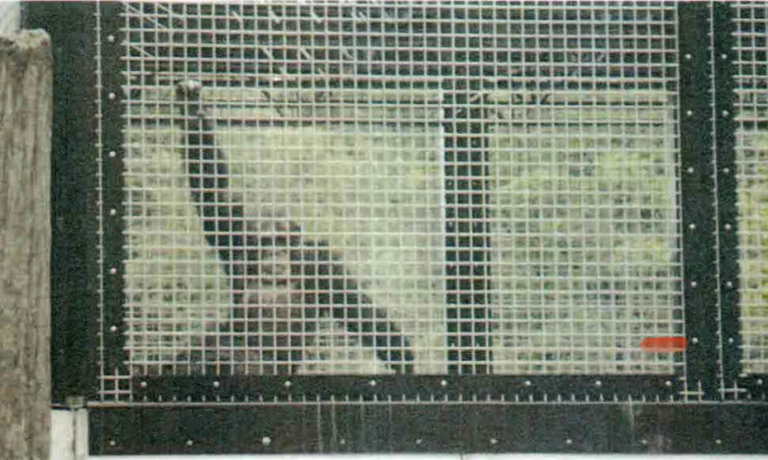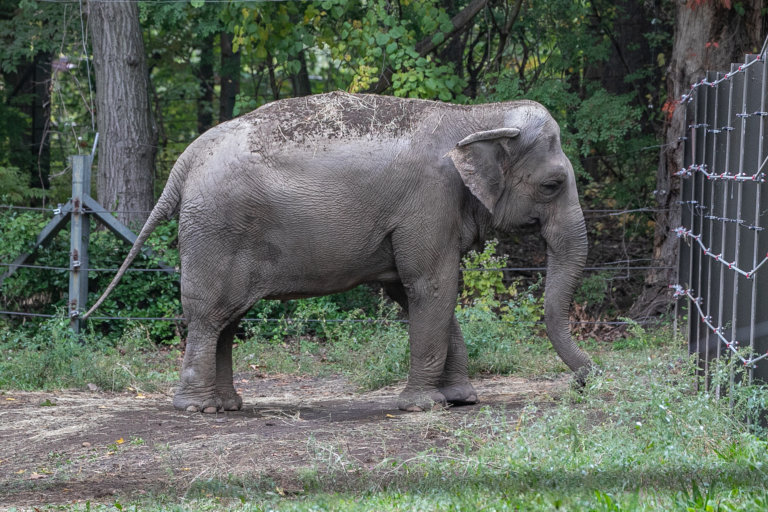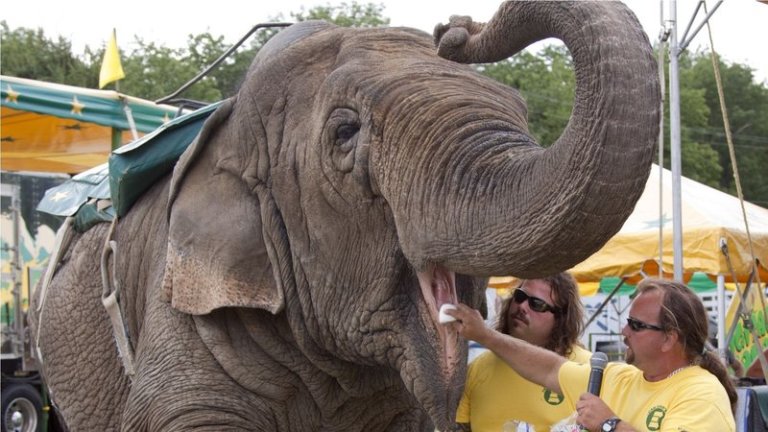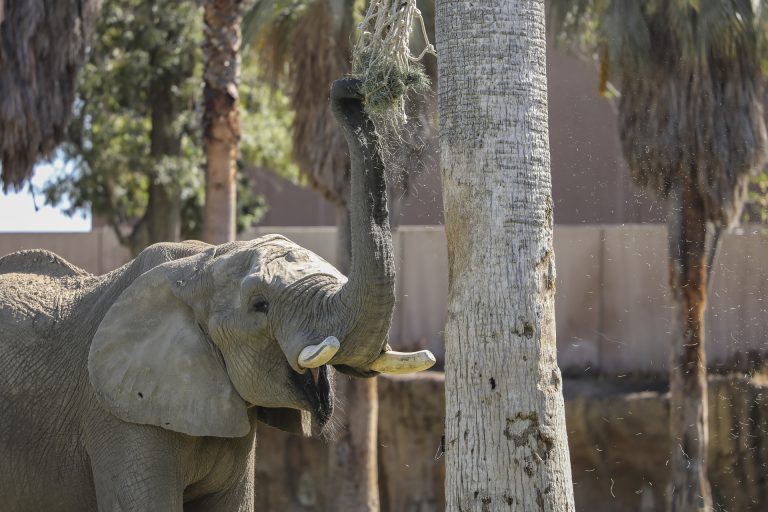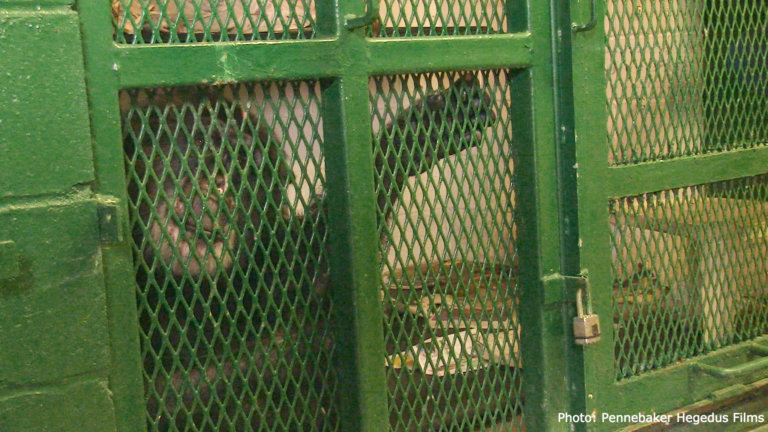
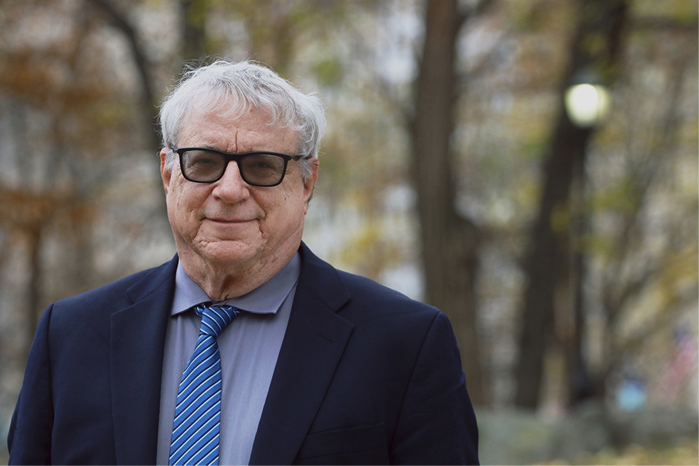
Tommy
When we found Tommy, a male chimpanzee, he was living alone in a cage in a shed on a used trailer lot along Route 30 in Gloversville, New York. Believed to have been born in the early 1980s, Tommy was raised from infancy by Dave Sabo, former proprietor of “Sabo’s Chimps.” Tommy appeared as “Goliath” in the 1987 film Project X, according to Sabo. Animal activist and TV icon Bob Barker and others alleged that trainers beat the chimpanzees used in the film with blackjacks and clubs. After Sabo died in 2008, “ownership” of at least some of the chimpanzees passed to the Laverys. The status of these other chimpanzees—including whether or not they’re still alive—is unknown.
Concrete walls painted to look like a jungle are the only intimation of a chimpanzee’s natural habitat in Tommy’s cage. A television is his only company. “He’d rather be by himself,” Patrick Lavery told the Albany Times Union in 2013. “He likes being by himself.”
Tommy is no longer in the custody of Mr. Lavery. On September 21, 2015, the Michigan Department of Agriculture & Rural Development (MDARD) approved transfer papers between Mr. Lavery and a roadside zoo called the DeYoung Family Zoo, which is located in Wallace, MI. It is the NhRP’s belief that Tommy, if alive, is still imprisoned at the DeYoung Family Zoo. The zoo no longer has chimpanzees on display to the public, so little is known about the nature of Tommy’s captivity or his physical and psychological health.
Steven M. Wise
The NhRP attorney who argued for Tommy’s freedom
Our founder and president appeared before numerous New York courts to demand recognition of Tommy’s legal personhood and right to liberty. Some of these courts were sympathetic; some were downright hostile. With his decades of experience, Steve was prepared for both.
Who's joined us in the fight
Scientific and legal support
Legal scholars Justin Marceau and Samuel R. Wiseman are among the many experts who submitted amicus curiae (“friend of the court”) briefs in support of the NhRP in Tommy’s case. In their brief, they urged the courts to allow Tommy to use habeas corpus to challenge the legality of his detention just as other “unjustly incarcerated beings” have done throughout history.
Donate to support the fight
Donate online
Mail a check
Planned giving
Create a fundraiser
Highlights from the fight
Media coverage
A timeline of Tommy’s case

5.8.18
The New York Court of Appeals denies our motion for permission to appeal, and New York Court of Appeals Judge Eugene M. Fahey issues a concurring opinion in which he asserts that the failure of the Court to grapple with the issues the NhRP raises “amounts to a refusal to confront a manifest injustice … To treat a chimpanzee as if he or she had no right to liberty protected by habeas corpus is to regard the chimpanzee as entirely lacking independent worth, as a mere resource for human use, a thing the value of which consists exclusively in its usefulness to others. Instead, we should consider whether a chimpanzee is an individual with inherent value who has the right to be treated with respect.”
3.8.18
The NhRP announces that legal advocacy organization the Center for Constitutional Rights and law professors Laurence H. Tribe (Harvard Law), Justin Marceau (University of Denver Sturm College of Law), and Samuel R. Wiseman (Florida State University College of Law) [JOINT BRIEF] have submitted amicus curiae briefs in support of the NhRP’s motion for permission to appeal.
2.26.18
The NhRP announces it has filed a motion for permission to appeal to the New York Court of Appeals in Tommy’s and Kiko’s cases, and a group of prominent philosophers submit an amicus curiae brief in support. The NhRP argues in its Memorandum of Law that the New York Supreme Court, Appellate Division, First Judicial Department’s June 2017 ruling requires review by the state’s highest court, not only because it conflicts with New York’s common law habeas corpus statute and previous rulings of the Court of Appeals, the First Department, and other Appellate Departments on issues pertaining to common law personhood and habeas corpus relief, but also “based on the novelty, difficulty, importance, and effect of the legal and public policy issues raised.” Engaging directly with a core issue raised by the NhRP’s appeal—the question of who is a “person” capable of possessing any legal rights—the philosophers’ brief maintains that the First Department’s ruling “uses a number of incompatible conceptions of person which, when properly understood, are either philosophically inadequate or in fact compatible with Kiko and Tommy’s personhood.” See also: Tommy Record on Appeal (Vol. 1 of 2) and Tommy Record on Appeal (Vol. 2 of 2).
1.18.18
The First Judicial Department denies our motion for permission to appeal. Within the next 30 days, the NhRP will file a motion for permission to appeal with the Court of Appeals itself, urging it to reject the First Judicial Department’s erroneous approach to our common law habeas corpus cases and to engage in the mature weighing of public policy and moral principle these novel and complex legal issues demand.
11.16.17
The NhRP files a motion with the First Judicial Department for permission to appeal to New York’s highest court, the Court of Appeals, in Tommy’s and Kiko’s cases. Read the accompanying Memorandum of Law here.
Amicus Support
